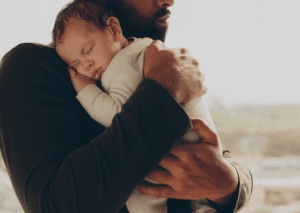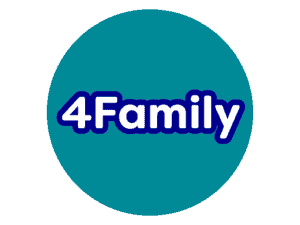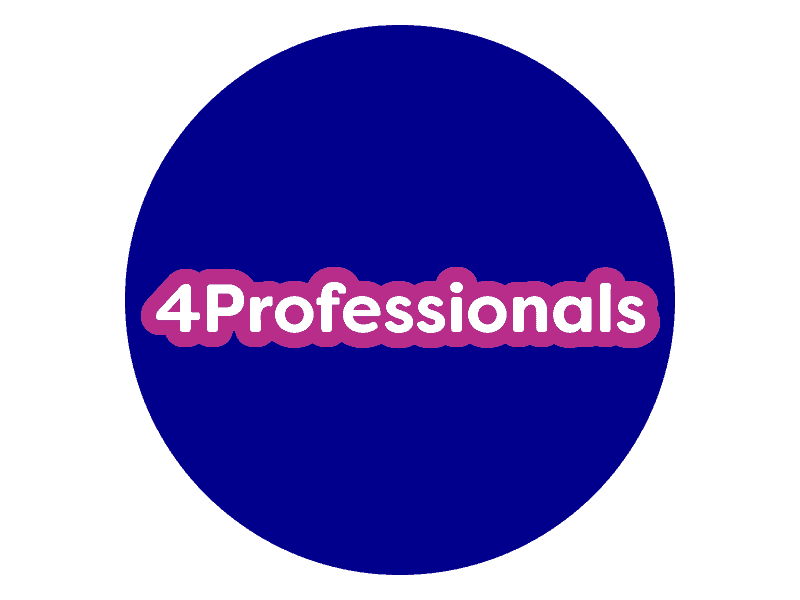How to support your baby to sleep without stress
Lyndsey Hookway
Paediatric Nurse, Health Visitor, IBCLC, Author, PhD researcher, Holistic Sleep Coach and Founder of the Holistic Sleep Coaching Program
@FeedSleepBond (twitter) @lyndsey_hookway (IG)
Summary
Sleep can be a hotly debated topic, and one that many new and expectant parents feel anxious about. You are probably well aware that a new baby comes with some sleep disturbance as standard.
But beyond a generalised sense of knowing that sleep deprivation is coming your way, you may also be wondering if there’s anything you can do to support your baby’s sleep. There are so many theories on sleep that it can be hard to know whose voice to trust, and which approach (if any) to follow.
Your baby, your parenting decisions
The first thing I would like to say to you is that how you parent your little one to sleep is entirely your choice. You may have lots of advice from well-meaning friends, family or even health professionals. Ultimately though, you are the expert on your child, having got to know them even before they were born.
Advice from sleep experts!
There are so many sleep ‘experts’ out there it seems. The trouble is, some of them are not quite as well-informed as they might appear. An abundance of myths and inaccuracies still exist, which can be confusing.
Some people might advise you to do things that are actually quite difficult – such as put your baby down ‘drowsy but awake’. This can be nearly impossible for a young baby.
You might also be told you have to train your baby to sleep. This is misleading, as you do not actually learn to fall asleep – sleep is a homeostatic bodily function. Everyone will eventually fall asleep if they are tired enough. Infants are no different. They can certainly, like all of us, develop some preferences for how they fall asleep, but you still can’t actually teach them how to fall asleep.
You might also hear that feeding to sleep is a bad habit. But feeding is designed to induce deep sleep, as milk contains hormones that specifically facilitate sleep1 – and by the way, formula does not make infants sleep better than breastmilk after the first few weeks.2
Or you might hear that you should leave your baby to cry. Not only can this be difficult, it is also hugely stressful for everyone3, and to cap it all, it doesn’t always work.4 There is always a gentler way to support your little one.5
You might feel like you are the only one whose baby is still waking in the night, but firstly, night feeding is actually really common and normal (for both breast and formula fed infants) for at least the first 18 months6, so having some realistic expectations about this can help. Secondly, the truth is that people don’t always accurately recall what happened overnight7, and they either exaggerate their child’s sleep, or feel they should say their child sleeps better than they do because they may feel it reflects on them badly if their child still wakes (even though it really doesn’t!).
Ultimately, if what someone is saying doesn’t sit right, it probably isn’t the right advice for you.
What about self-soothing?
 One of the most common things you are likely to hear is that your baby needs to learn to ‘self-soothe’. Let’s unpack that a little. The truth is, we all wake in the night, in between sleep cycles – it’s entirely normal. What is more variable, is how easily babies return to sleep after these brief awakenings.
One of the most common things you are likely to hear is that your baby needs to learn to ‘self-soothe’. Let’s unpack that a little. The truth is, we all wake in the night, in between sleep cycles – it’s entirely normal. What is more variable, is how easily babies return to sleep after these brief awakenings.
Self-soothing is a phrase coined in the late 1970’s. Researchers observed that some infants had the ability to utilise some primitive self-regulatory skills, such as finger or thumb sucking, and return to sleep (as long as they didn’t have a need to wake, like hunger for instance). These babies were dubbed, the self-soothers. Other infants were not able to use these skills and called out for help from their parents to help them go back to sleep. These babies were dubbed the signallers.8 Now, if your baby is a signaller, the reality is that they may wake you up more in the night. But the other truth is that you cannot teach a baby to not need you.
Babies ultimately learn to self soothe by being soothed. If your baby needs your help to go back to sleep, rest assured, you’re doing the right thing by supporting them. Being responsive, and prompt in your attention to your baby keeps them happier, calmer and less stressed. You’re not making a rod for your own back or creating a bad habit. Nobody ever regrets being gentle.
Learning to ‘read’ your baby
No book has ever been written on your baby. People tend to recommend what worked for them – but that doesn’t mean it will work for your baby. Your baby is totally unique. This is where charts and downloadables giving prescriptive sleep timings and routines don’t tend to work for the majority of babies.9 In fact, they can just make everyone more stressed. Instead, accept that you will need to spend some time getting to know your baby, their cues, needs and how they express themselves.10 The one piece of advice I would definitely offer here is not to become too fixated on sleep. Often, the more stressed we get about sleep, the worse it gets. Let your calm be contagious!11
What gentle sleep tools might help?
- Find likeminded parents who are also eager to prioritise close, responsive parenting and choose gentler strategies. You’ll find that having some peers who understand your sleep and parenting goals is really supportive
- Help your baby establish their circadian (body) rhythm by exposing them to 12 hours of light, and 12 hours of darkness. This includes keeping them in the light for daytime naps.
- Try offering your baby a variety of tools for sleep, rather than relying on one. This can help sleep to feel more sustainable. Baby wearing, rocking, lying down together, breast or bottle feeding them, white noise, or patting can all help.
- Prioritise feeding, and a close, loving relationship. Calm babies sleep better.
- Learn how to feed lying down and consider whether bed-sharing might be a way to get more sleep. Bed-sharing is not recommended for everyone, so check the links below to risk-asses your situation.
- Learn that all babies are different, and if something is working for you, then you do not need to change it.
Summary
It may be helpful to have an honest conversation with your partner about some of your values around sleep and parenting. We all carry our own experiences of being parented with us, and these experiences both consciously and subconsciously influence our choices and feelings about parenting. Discussing some of the aspects of parenting that are important to you both before your baby arrives may reduce the likelihood of a heated debate at 11pm.
I would also recommend taking some practical steps to make your life easier in the early days. Stock the freezer with easy meals, accept offers of help, add a sling, baby carrier or wrap to your ‘must-buy’ list, and arm yourself with a few gentle and evidence-based books and websites you know you can trust.
Becoming a family is exciting, challenging, exhausting, hilarious, confusing and utterly joyful, sometimes all at the same time. I wish you all the very best at the start of your journey.
Links to birth repository resources
 Websites
Websites
The Beyond Sleep Training Project
(also a facebook group)
(also a facebook page)
 Guidelines
Guidelines
Academy of Breastfeeding Medicine protocol on bed-sharing
UNICEF Caring for your baby at night
 Books
Books
James McKenna: Safe Infant Sleep
Lyndsey Hookway: Holistic Sleep Coaching
Wendy Middlemiss and Kathy Kendall Tackett: The Science of Mother Infant Sleep
Sue Gerhardt: Why Love Matters
Pinky McKay: Sleeping Like a Baby
Andrea Herron and Lisa Rizzo: Suckle, Sleep, Thrive
Cecilia Tomori: Nighttime Breastfeeding
Elly Taylor: Becoming Us
References
- Shukla, C., & Basheer, R. (2016). Metabolic signals in sleep regulation: recent insights. Nature and science of sleep, 8, 9.
- Brown, A., & Harries, V. (2015). Infant sleep and night feeding patterns during later infancy: Association with breastfeeding frequency, daytime complementary food intake, and infant weight. Breastfeeding Medicine, 10(5), 246-252.
- Rudzik, A. E. (2015). Normal infant sleep and parental expectations. International journal of birth and parent education., 2(2), 7-10.
- Douglas, P. S., & Hill, P. S. (2013). Behavioral sleep interventions in the first six months of life do not improve outcomes for mothers or infants: a systematic review. Journal of Developmental & Behavioral Pediatrics, 34(7), 497-507.
- Whittingham, K., & Douglas, P. (2014). Optimizing parent–infant sleep from birth to 6 months: A new paradigm. Infant Mental Health Journal, 35(6), 614-623.
- Hysing, M., Harvey, A. G., Torgersen, L., Ystrom, E., Reichborn-Kjennerud, T., & Sivertsen, B. (2014). Trajectories and predictors of nocturnal awakenings and sleep duration in infants. Journal of Developmental & Behavioral Pediatrics, 35(5), 309-316.
- Rudzik, A. E., Robinson-Smith, L., & Ball, H. L. (2018). Discrepancies in maternal reports of infant sleep vs. actigraphy by mode of feeding. Sleep medicine, 49, 90-98.
- Anders, T. F. (1979). Night-waking in infants during the first year of life. Pediatrics, 63(6), 860-864.
- Harries, V., & Brown, A. (2019). The association between use of infant parenting books that promote strict routines, and maternal depression, self-efficacy, and parenting confidence. Early Child Development and Care, 189(8), 1339-1350.
- Nugent, J. K. (2015). The newborn behavioral observations (NBO) system as a form of intervention and support for new parents. Zero to Three Journal, 36(1), 2-10.
- Waters, S. F., West, T. V., & Mendes, W. B. (2014). Stress contagion: Physiological covariation between mothers and infants. Psychological science, 25(4), 934-942.







